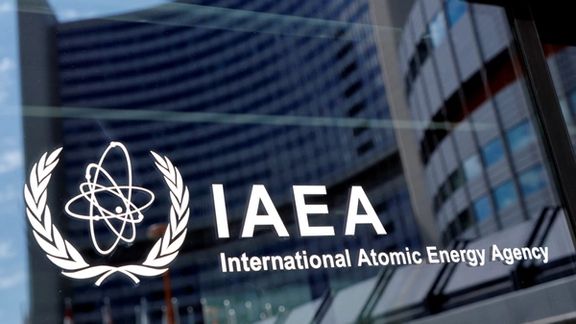IAEA Resolution Critical Of Iran Passes Overwhelmingly

The board of governors of the International Atomic Energy Agency (IAEA) has overwhelmingly passed a resolution critical of Iran’s nuclear cooperation.

The board of governors of the International Atomic Energy Agency (IAEA) has overwhelmingly passed a resolution critical of Iran’s nuclear cooperation.
Of 35 members states on the board, 30 voted in favor of the resolution sponsored by the ‘E3’ (France, Germany, the United Kingdom) and the United States. India, Libya and Pakistan abstained, while Russia and China voted against.
The resolution called on Iran to engage with the IAEA, the United Nations nuclear watchdog, without delay and expressed “profound concern” at Iran’s failure to satisfy the agency over traces of uranium found at three undeclared sites and highlighted last week in a report from IAEA director-general Rafael Mariano Grossi.
The resolution comes with year-long talks paused since March between Iran and six world powers aimed at reviving the 2015 Iran nuclear deal, the JCPOA (Joint Comprehensive Plan of Action), and with continuing preparations in Israel for an attack on Iran’s nuclear sites.
Iran: ‘Meaningless and disappointing’
Mikhail Ulyanov, Russia’s IAEA ambassador, tweeted that the resolution was “highly questionable under the circumstances” and that countries making up more than half the world’s population had not supported it. Russia had opposed the move, which Moscow argues undermines efforts to salvage the JCPOA.
Fars News agency reported Iran's acting IAEA ambassador, Mohammad-Reza Ghaebi, condemning the resolution and saying Iran would respond appropriately. Ghaebi said that given “exemplary cooperation” between Iran and the agency, this resolution was “meaningless and disappointing.”
Earlier in the day, apparently in response to developments at the IAEA, the Atomic Energy Organization of Iran (AEOI) announced it was turning off two IAEA monitoring systems and associated cameras at two unspecified nuclear sites, which it said were not required by Iran’s commitments as a signatory of the Nuclear Non-Proliferation treaty (NPT).
‘Watered-down’
Critics of the JCPOA in the United States are unlikely to be satisfied that their campaign against the agreement, which the administration of President Joe Biden and the E3 say they want to revive, has yet succeeded. Gabriel Noronha, special advisor on Iran in the administration of President Donald Trump, tweeted that the resolution was “watered-down.”
Kelsey Davenport, director for Nonproliferation Policy at the Washington-based Arms Control Association, tweeted support for the resolution, which she suggested was a “necessary signal to Iran that there are consequences for not cooperating with the IAEA.” But she also argued it should “motivate the US & E3 to get back to the drawing board to find a solution to the impasse over talks to restore the JCPOA.”